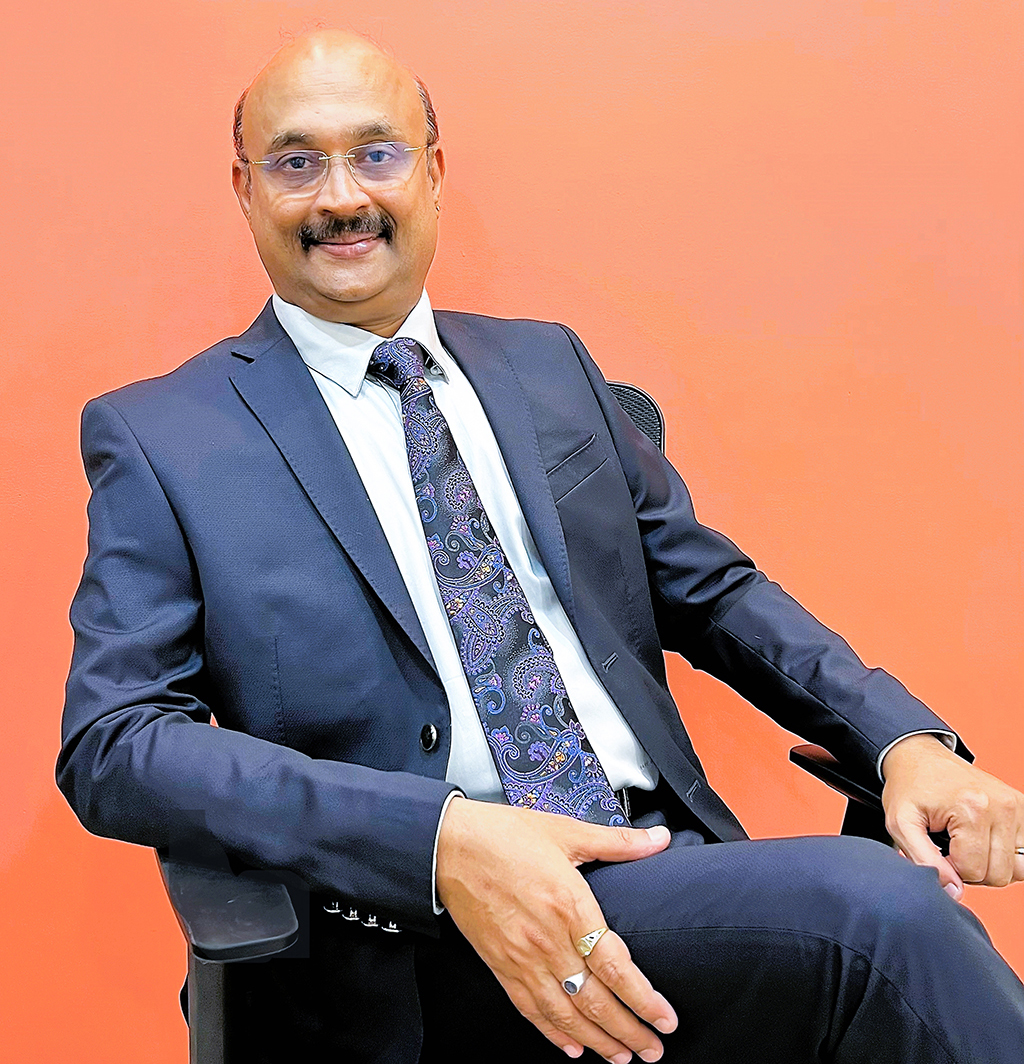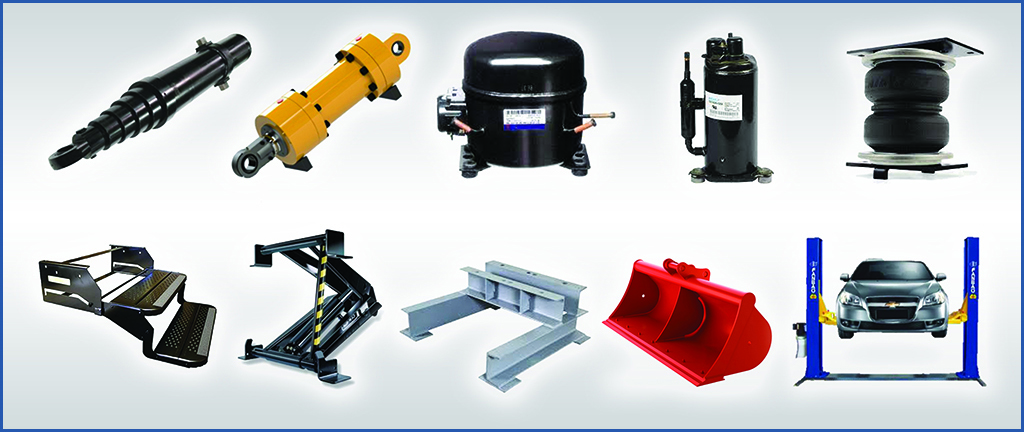Shivakumar. K, CEO, Engineered Components Business of Pennar Industries shares with N. Balasubramanian his Strategic Business Unit’s ambitious goal of becoming a tier-1 supplier on its way to turning an OEM and the aggressive steps that are being planned and executed to make this dream come true… and all this while simultaneously strengthening their business foothold in the market.

Growing a business six-fold in a mere six years is a humongous achievement, considering that in the previous couple of years the economy and the industry were on the low due to the COVID pandemic. Pennar Industries is one of the leading players in India today known for industrial high precision engineered steel components specializing in safety critical and high performance components for both domestic and international markets. The company’s primary product lines are air suspension for buses and multi-axle trucks besides brakes for CVs and 2-wheelers, auto electricals for 2-wheelers and fabricated parts and hydraulic cylinders for the off- high vehicles.
Shivakumar. K, CEO, Engineered Components Business (ECB) of Pennar Industries, confirms the fact that his Strategic Business Unit (SBU) is undergoing a complete overhaul to get on to the fast track of growth. In alignment with the goal, the management created four new business verticals and the team is focused on grabbing opportunities and developing businesses that came their way as companies shut shops in China during the pandemic.
Turning a New Leaf
Transforming themselves into a new avatar required the ECB to take a relook at the basics. A firm foundation of people, processes and systems was set in place to address global and domestic requirements in the automotive industry better. Strengthening them further was their competent team and their goal of offering value-added products, but most importantly, the business cashed in on a major USP – control over their access to raw material.
Shivakumar says: “From being a manufacturer of one product, we created four business verticals, namely automotive components, hydraulic cylinders, precision sub-assemblies, and white goods or what we call as a deep draw product vertical. Each vertical has the requisite space to grow on its own merit and for us, value-addition is part of manufacturing since we are adopting special processes now.”
New growth in the ECB involves the following business regimen which is four-fold in nature – bringing in new customers, expanding to new geographies, looking at products that are everlasting, and being profitable.
He shares with pride: “Our aim is to focus equal attention on growing in the global markets as well as domestic. Naturally, we want the products to generate revenue, hence we opted for asset divestment and capital expenditure. The shift of the global supply chain from China to India during the pandemic was in our favor. We moved fast to compensate for the slowdown in the domestic market and with growing international markets, despite severe supply chain issues. And post COVID, when the economy started opening, we grew our business from a meager value to almost double the growth.
The actual point of differentiation is, the fact that the bulk group buying of steel from one of India’s largest integrated steel majors and reaps the advantage of converting it into multiple variations at its own processing plant.
Shivakumar explains further: “This gives us a wide range of products with different specifications. It means we are in control of the lead time, the price, and we are also able to manage our inventories. So, controlling access to raw material is a huge competitive advantage for us.”
Business Distribution
Currently, revenues for Pennar Industries’ ECB are neatly split down the middle – between exports and the domestic business. And if the US is the primary market for exports, the company has limited exposure to Europe.
He adds: “We export directly to the distribution houses which are known as cataloguing companies in the US. These companies carry a mix of products and are highly popular there. And we also sell to tier-1 OEMs who assemble products such as brakes and supply to popular vehicle brands.”
And the core team at Pennar’s ECB is looking to establish their business in Europe more firmly in the next couple of years.
Focus Areas
The ECB revenue stands among the top players this year, and gains after clocking a record turnover. The management aims to be among the top three in the next five years with a focus on business hygiene of growth orientation, asset sweating, cash generating and being profitable.
Shivakumar explains how: “We are looking at addressable markets for each of our verticals. And we can aim to grab this market with our current capabilities by adding capital expenses, people and a few other elements. Initially, we will target to double the business in the next three years. Currently, our business from the 2-wheeler segment is 25-30%, about 35% from the commercial brakes business and the rest comes from the off-highway segment. We are clear that we can achieve this by focusing on a few areas such as hydraulic cylinders for which we have set up a new facility in Chennai, with a capacity of 300,000 plus cylinders per annum. We are aiming for extensive growth in Europe, and US markets further.”
He senses a slight slowdown in the international market in the next two quarters, hence the company is simultaneously working on the domestic market also, to mitigate any risk, where one of the focus areas is agricultural industry which is catching up globally.

He opines: “Hydraulic cylinders and fabricated parts are some of our products that are utilized across industries like agriculture, construction and material handling. And these along with precision sub-assembly verticals are likely to grow aggressively. The auto components segment has been showing good traction and continues to grow at 25-30%. Pennar is already a leading supplier of disc brakes to 2-wheeler OEMs, and this segment continues to grow too. The domestic commercial segment is facing a sudden spurt in demand and we are keen on grasping it too.”
As a company that designs, engineers and manufactures, Pennar’s advantage is a short average time of 12-18 weeks from RFQ to prototyping for the customers.
Roadmap Ahead
For Shivakumar, the journey forward deeply involves moving up the value chain by adopting technology.
He explains: “We began with making components, then products and sub-assemblies. Now we want to move on to full-fledged assemblies. Our aim is to become a tier-1 supplier and ultimately to become an OEM.”
In the next few years, Pennar Industries’ ECB will be looking at not only adopting cutting-edge technology that will be relevant to all their business verticals, but also probably entering joint ventures or even opt for acquisitions besides exploring newer business opportunities such as casting and engineered stamping products.
It is for sure that the future is rife with possibilities for the Engineered Components Business with Shivakumar and his team at the helm.